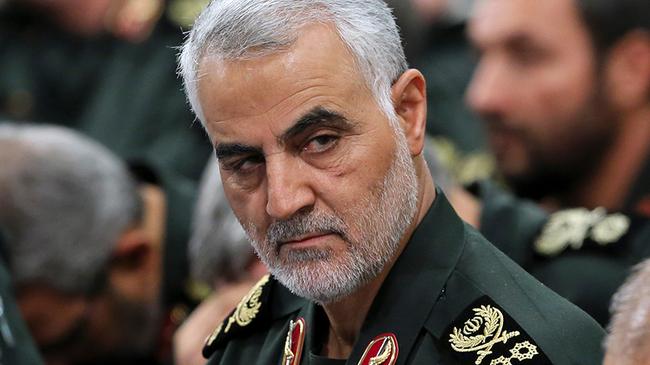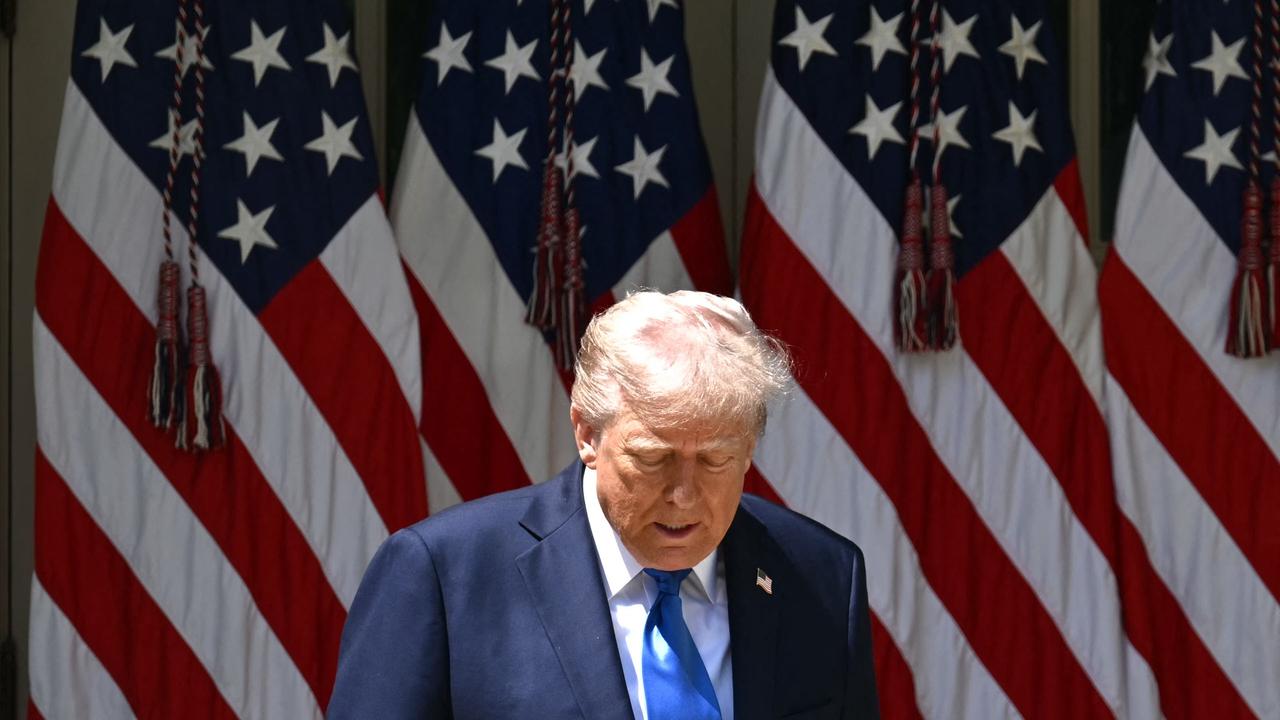Top Iran general Qassem Soleimani killed in US strike
Donald Trump authorised the strike that killed Qassem Soleimani, leader of the foreign wing of Iran’s Islamic Revolutionary Guard.

US President Donald Trump authorised a strike that killed Qassem Soleimani, leader of the foreign wing of Iran’s Islamic Revolutionary Guard Corps on Friday, the Pentagon said, triggering threats of a retaliatory attack from Tehran.
Top Iraqi paramilitary commander Abu Mahdi al-Mohandes and five others were also killed when their convoy was struck on the road leading to Baghdad International Airport.
Iran’s Supreme Leader Ayatollah Ali Khamenei swiftly promised “severe revenge” for General Soleimani’s death, the biggest escalation in a feared proxy war between Iran and the US on Iraqi soil.
Tens of thousands of angry Iranians took to the streets of Tehran chanting “Death to America” and holding up posters of Soleimani.
“At the direction of the President, the US military has taken decisive defensive action to protect US personnel abroad by killing Soleimani, the head of the Iranian Revolutionary Guard Corps’s Quds Force, a US-designated Foreign Terrorist Organisation,” the US Department of Defence said.
“General Soleimani was actively developing plans to attack American diplomats and service members in Iraq and throughout the region. This strike was aimed at deterring future Iranian attack plans. The US will continue to take all necessary action to protect our people and interests wherever they are around the world.”
Iran’s state television said the strike that killed General Soleimani came from US helicopters.
Khamenei declared three days of mourning and warned that a “harsh retaliation is waiting”.
The Pentagon said General Soleimani and “his Quds Force were responsible for the deaths of hundreds of American and coalition service members and the wounding of thousands more”. Former US ambassador to Israel, Dan Shapiro, said General Soleimani was “truly one of the most evil men on the planet”. “Seeing his smiling mug in selfies with terrorists across the region was hard to take. Good riddance.”
A former adviser to the revolutionary guards said General Soleimani’s death would be met by stark Iran retaliation. “It’s going to be ugly,” he said.
The Pentagon said General Soleimani had orchestrated attacks on US-led coalition bases in Iraq and was behind an attack a week ago in northern Iraq.
That attack, carried out by the Iranian-backed Kataeb Hezbollah militia, involved a barrage of rockets fired at a base in Kirkuk, killing a US contractor and sparking a spiral of violence.
The US conducted airstrikes against militia bases in Iraq and Syria on Sunday, killing 27 people. Supporters of the militia then tried to storm the US embassy in Baghdad this week, causing the US to send in reinforcements.
Mr Trump then warned Iran would pay a price.
The killing of General Soleimani and Mohandes — real name Jamal Jaafar Ibrahimi — is likely to mark the beginning of a dangerous new chapter in the rivalry between the US and Iran.
Mohandes was the deputy head of the Popular Mobilisation Forces, an umbrella for dozens of militias that are part of the Iraqi security apparatus that accused the US of the strike.
US Secretary of State Mike Pompeo singled out Mohandes this week as having orchestrated the attack on the US embassy, along with other figures close to Iran. Democrat congressman Andy Kim, who was the Iraq director at the National Security Council during the Obama administration, said it had considered the possibility of killing General Soleimani but never went through with it because of concerns about backlash in the region.
“Over and over again, we were so worried about the escalation of violence that would come after that,” he said. “The level of unpredictability going forward is very concerning to me.”
Tensions with Iran have risen since the US in 2018 pulled out of an international nuclear deal and reimposed sanctions on Tehran. Last April, the Trump administration listed the guards as a terrorist organisation and the President said he would cancel waivers by May for Iran’s remaining oil customers.
Oil surged following news of the attack, with Brent crude, the global gauge of prices, rising 3.5 per cent to $US68.58 a barrel after futures trading opened on Friday.
General Soleimani’s death deprives Iran of a charismatic leader who managed its network across the Middle East and significantly raises chances of a major military confrontation among Washington and Tehran and its proxies.
“The killing of Qassem Soleimani is one of the biggest developments in the Middle East for decades,” said Charles Lister, a senior fellow at the Middle East Institute, a Washington-based think tank.
The Wall Street Journal



To join the conversation, please log in. Don't have an account? Register
Join the conversation, you are commenting as Logout